CHAIR’S SUMMARY
On 8 September 2021, a group of international top-level decision-makers came together in Berlin and was joined virtually by politicians, scientists, and representatives of international organizations, civil society and the private sector to jointly discuss the urgent need to stop deforestation and conserve tropical forests, and to raise ambition and political attention for this essential resource in the run-up to the two Conferences of Parties in Glasgow (climate) and Kunming (biodiversity).
Tropical forests continue to be under threat. Despite increased international attention in recent years (e.g. New York Declaration on Forests in 2014), tropical forests are still being destroyed at an alarming rate. The current trends in forest loss presented at the beginning of the Symposium are alarming: the loss of primary forests is accelerating globally. In the Amazon, a tipping point for tropical forests has been reached and forests are now emitting more CO2 than they are absorbing. These alarming figures prompted speakers from three German ministries whose work relates to the conservation of tropical forests to advocate for stronger and particularly more timely action, calling on the international community to significantly step up their political and financial efforts, and on forest countries to accelerate reforms toward stronger conservation, with the joint goal of halting the loss of (primary) forest. In that context, it was pointed out that the share of 3% of international climate finance that currently goes toward the conservation of tropical forests is not appropriate to their tremendous contribution to the climate and biodiversity and, thus, the survival of humanity.
Participants in the Symposium agreed that the global community needs to ensure a Fair Deal between tropical forest and other countries, clearly defining expectations, rights and obligations with regard to each individual, actor and group influencing the state of forests, directly or indirectly. Otherwise we will not be able to limit global warming to 1.5°C.
High-level panelists from major stakeholder groups agreed that smarter forest policies and better governance are needed at all levels and across various sectors affecting forests. Appropriate laws, regulations and standards beyond traditional silos are important so as to stop forest degradation and conversion and regulate markets to eliminate deforestation from supply chains. In this process, the equitable inclusion and participation of all stakeholders needs to be ensured throughout. Finally, we need adequate finance for forests from all sources, domestic and foreign as well as public and private (deforestation-free finance) to create economic incentives for forest conservation, notably for local communities. Forest countries with historically low deforestation rates pointed out that their contribution to the world’s climate should be appropriately remunerated by the international community. Tropical countries fulfilling their responsibility to sustain their forests for the benefit of the people living in and around them, as well as for the global community, must receive appropriate compensation and strong, well-coordinated and streamlined support from the international community.
In order to fulfill their responsibilities, forest countries need to develop ambitious reform agendas, pursue them consistently, and enforce them effectively. This requires equitable legislation including secure land tenure and a strong focus on benefits for indigenous peoples and local communities, effective institutions, and implementation in line with human rights and rule of law standards. Economic incentives for forest conservation and other measures need to benefit local and indigenous communities.
As an important step forward, the Central African member states of the COMIFAC, backed by a broad range of stakeholder groups in the Congo Basin Forest Partnership, jointly adopted a Declaration in the margins of the Symposium which describes their shared vision for the protection and sustainable use of the Congo Basin forests. They presented their joint vision and reform ambitions at the Symposium and called for more political and public attention and international support for the Congo Basin forests, clearly defining “to do’s” for themselves and for donors towards realizing the Fair Deal idea.
Participants in the Symposium broadly agreed that consumer countries have to stop importing deforestation. Suitable instruments are, among others, due diligence regulation and appropriate trade policies. The Symposium participants therefore strongly welcomed the European Commission’s decision to present a legislative proposal on deforestation-free supply chains at the end of 2021. They also called for efforts to include other markets, notably China and the US, to streamline regulations, and to work with the private sector and producer countries to develop deforestation-free supply chains without harming their economies or small producers – in recognition of the agricultural sector’s medium-term and long-term dependency on forests and the ecosystem services they provide.
Participants in the Symposium announced that they will take the call for a Fair Deal to Glasgow and Kunming and look at why the Congo Basin has received three to five times less support than other tropical regions. In the future, an appropriate share of climate funding should be dedicated to forests and biodiversity, as they play an important role in regulating the world climate. The UK will put forest and land use high on the agenda of COP26. In this regard, the World Leaders Summit on 2 November is expected to announce collective commitments, including a dedicated pledge for the conservation of the Congo forest.
In this spirit, Germany will increase its efforts even further. New contributions include 125 million euros for the Central African Forest Initiative (CAFI) and 15 million euros for a newly created multi-donor fund under the Amazon Initiative implemented by the Inter-American Development Bank.
Germany will also step up its efforts at the policy level and support the UK in elaborating an ambitious declaration.
Lorem ipsum dolor sit amet, consectetuer adipiscing elit. Aenean commodo ligula eget dolor.
Lorem ipsum dolor sit amet, consectetuer adipiscing elit. Aenean commodo ligula eget dolor. Aenean massa. Cum sociis natoque penatibus et magnis dis parturient montes, nascetur ridiculus mus.
Lorem ipsum dolor sit amet, consectetuer adipiscing elit. Aenean commodo ligula eget dolor.
Lorem ipsum dolor sit amet, consectetuer adipiscing elit. Aenean commodo ligula eget dolor. Aenean massa. Cum sociis natoque penatibus et magnis dis parturient montes, nascetur ridiculus mus.
BM REDE
Extracts from the Tropical Forest Symposium
To protect tropical forests effectively, a fair deal between tropical forest countries and the global community is needed. The aim of the Tropical Forest Symposium on 8 September 2021 in Berlin was to bring this fair deal to life.
The following video film summarises the answers, proposals and positions of the political decision-makers and German and international experts who exchanged views at the Berlin Tropical Forest Symposium. The film is available in English, French and German. Please choose the language version you prefer.
slide of speakers
Lorem ipsum dolor sit amet, consectetuer adipiscing elit. Aenean commodo ligula eget dolor. Aenean massa. Cum sociis natoque penatibus et magnis dis parturient montes, nascetur ridiculus mus. Donec quam felis, ultricies nec, pellentesque eu, pretium quis, sem. Nulla consequat massa quis enim. Donec pede justo, fringilla vel, aliquet nec, vulputate eget, arcu. In enim justo, rhoncus ut, imperdiet a, venenatis vitae, justo. Nullam dictum felis eu pede mollis pretium. Integer tincidunt. Cras dapibus. Vivamus elementum semper nisi. Aenean vulputate eleifend tellus. Aenean leo ligula, porttitor eu, consequat vitae, eleifend ac, enim. Aliquam lorem ante, dapibus in, viverra quis, feugiat a, tellus.
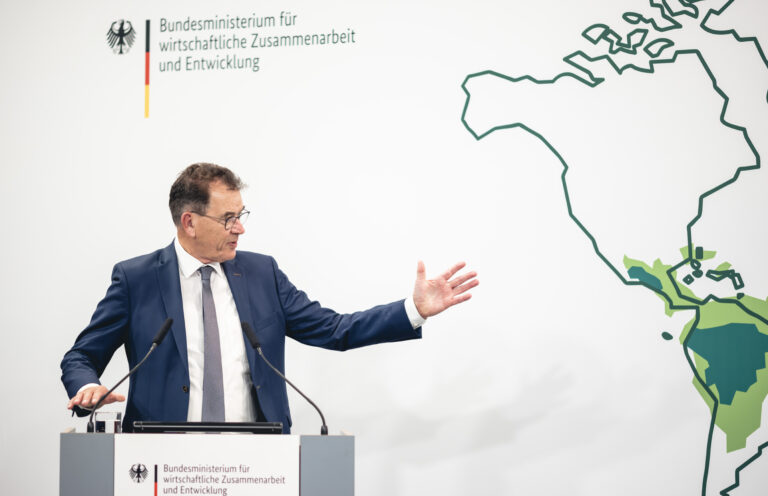
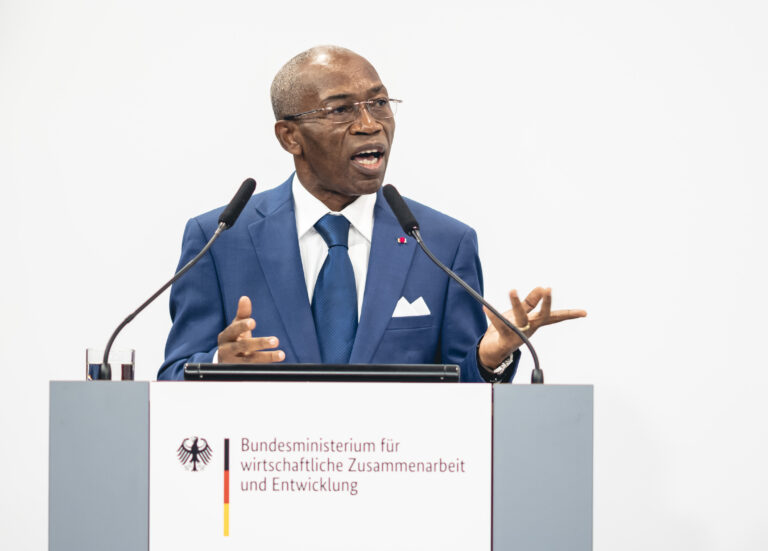
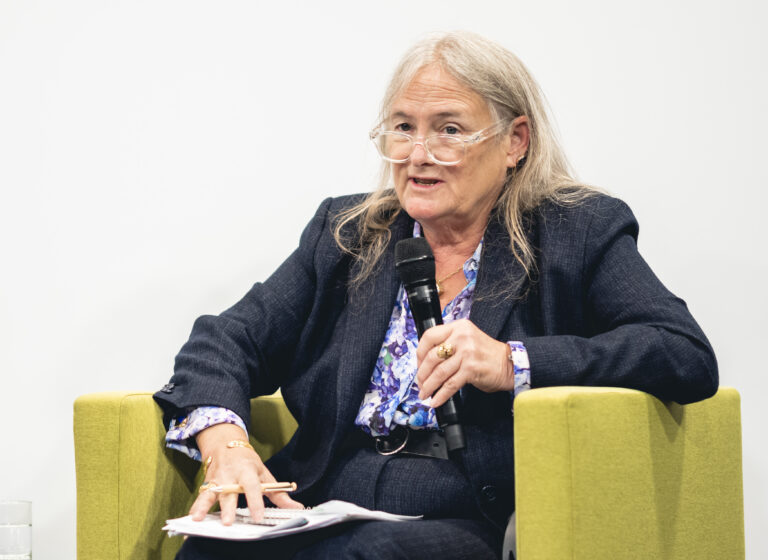
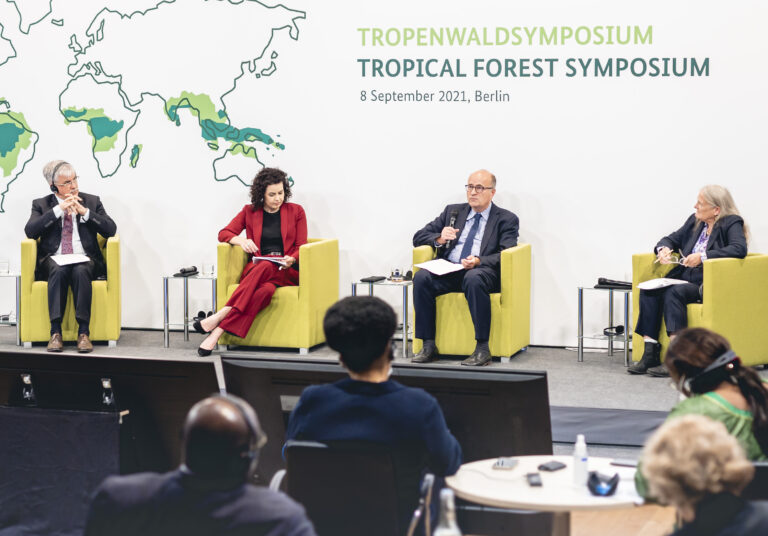
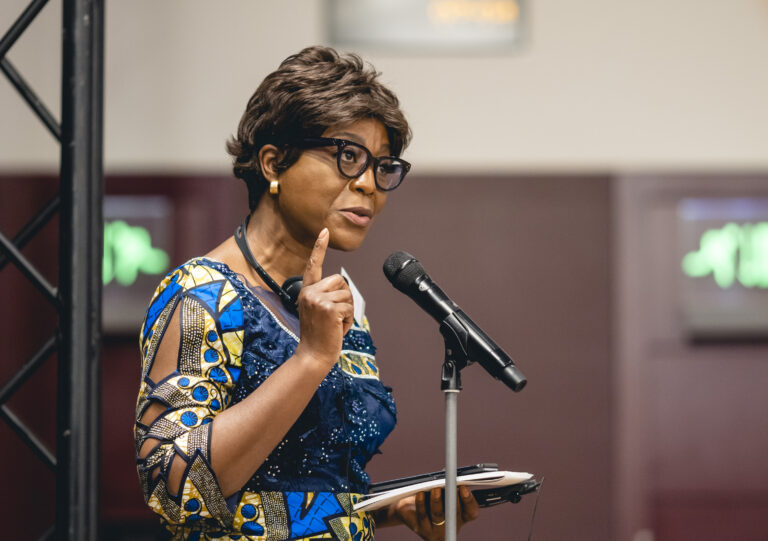
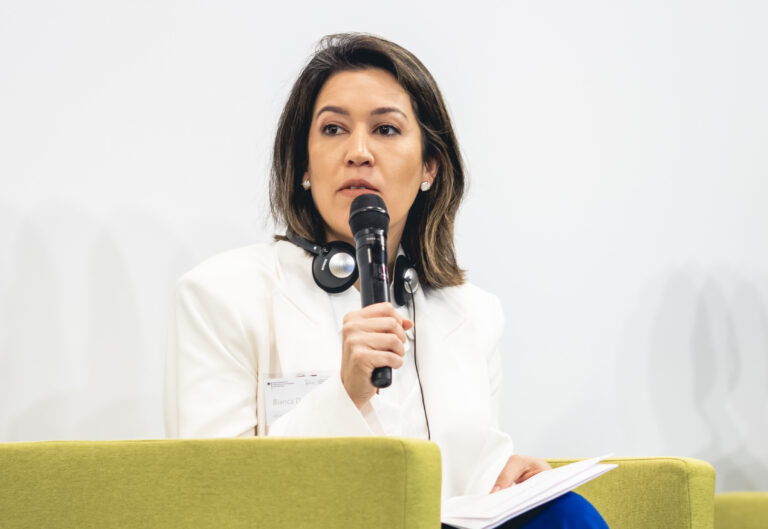
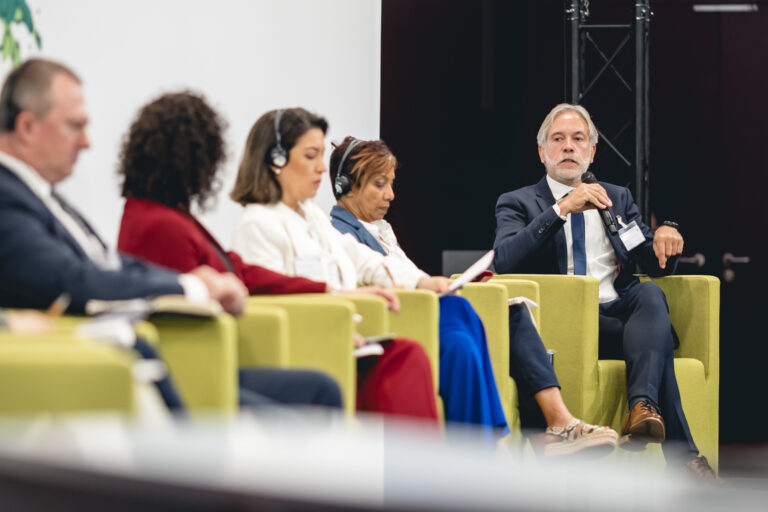
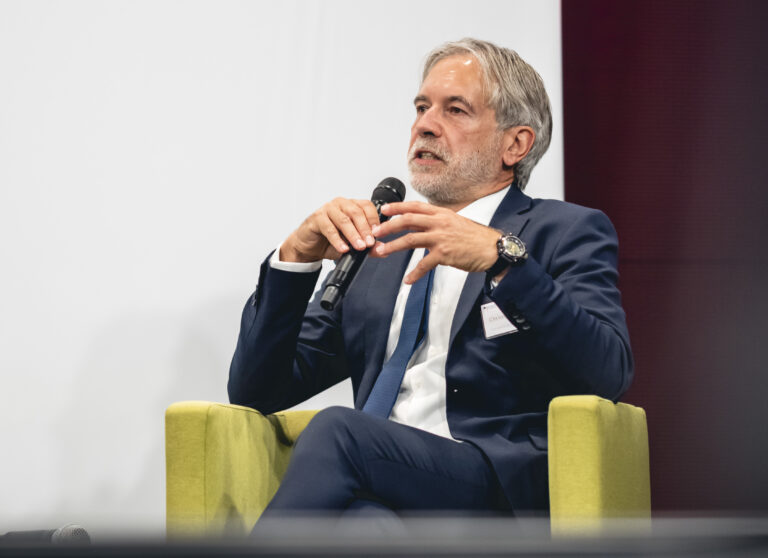

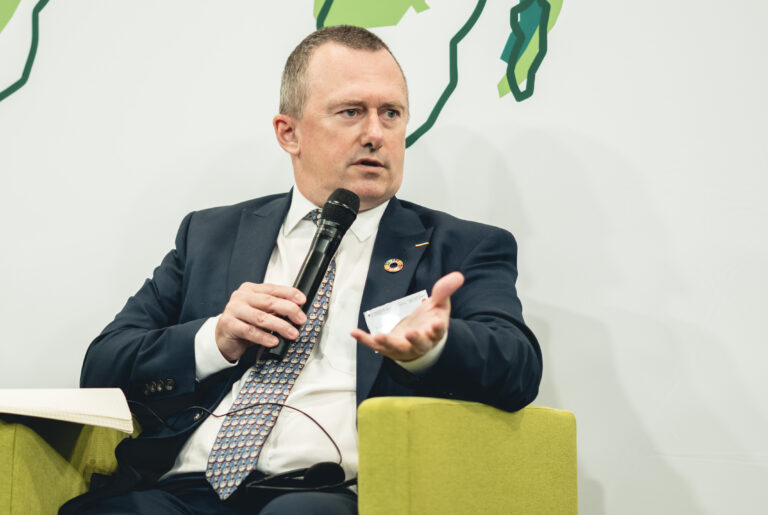
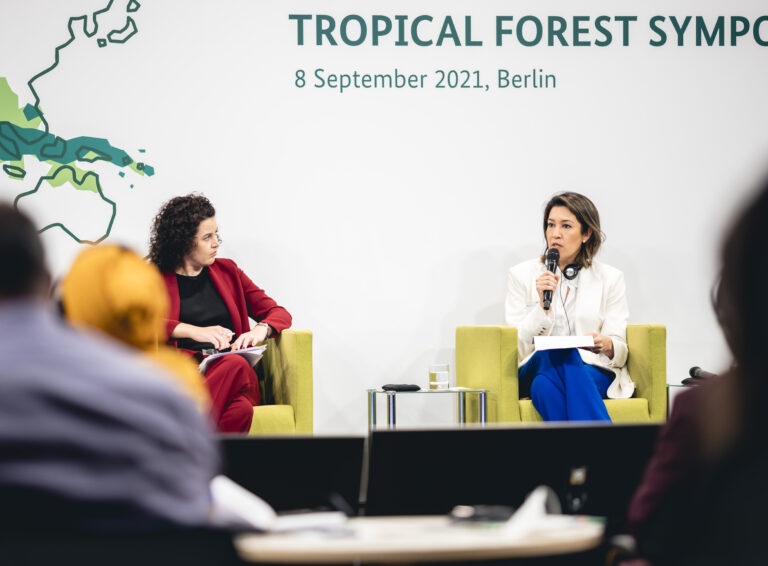
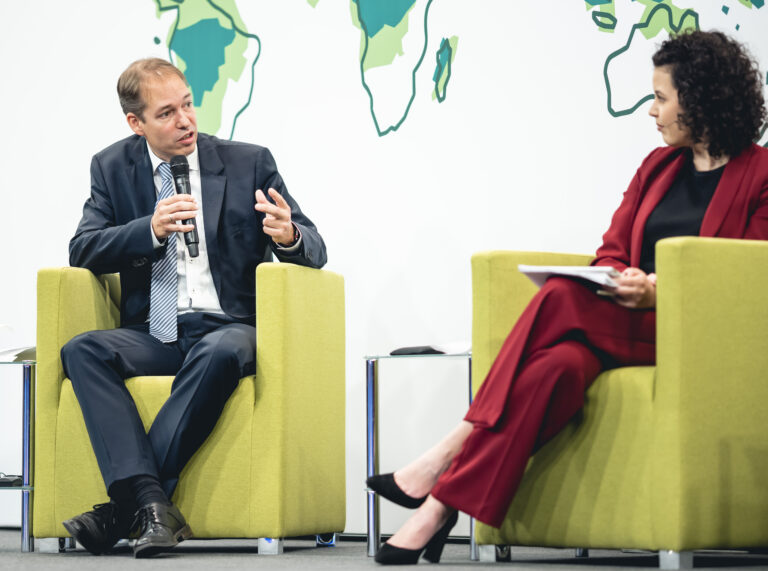
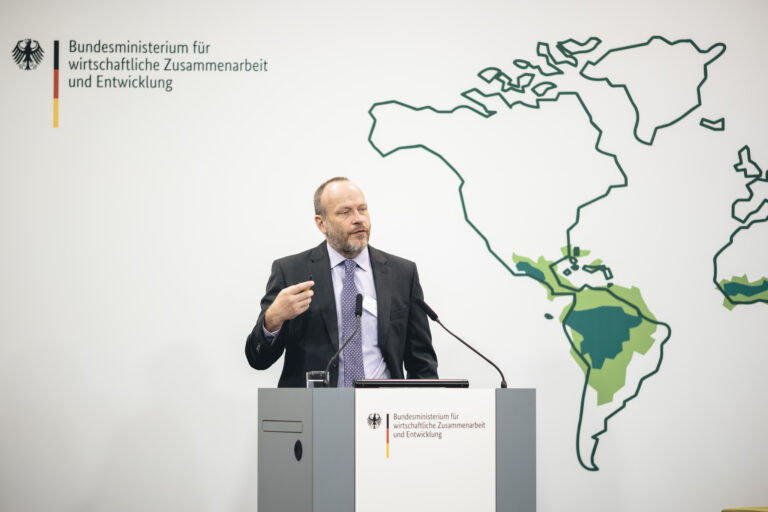
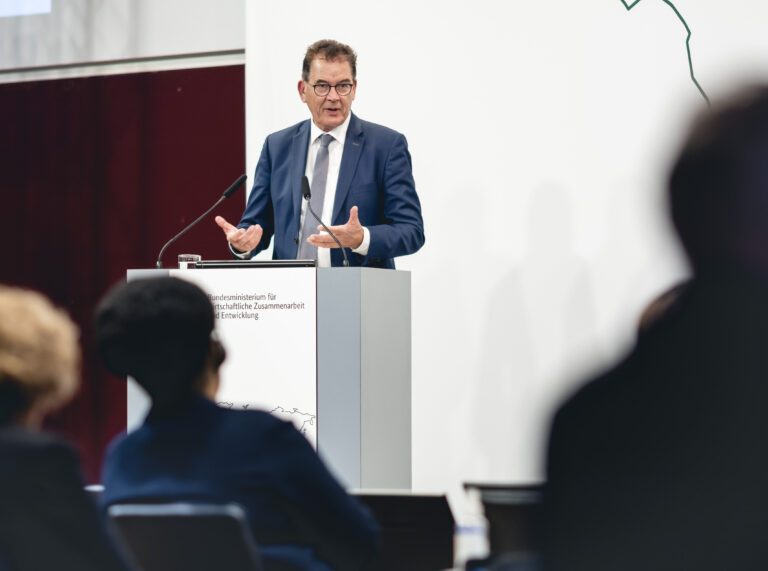
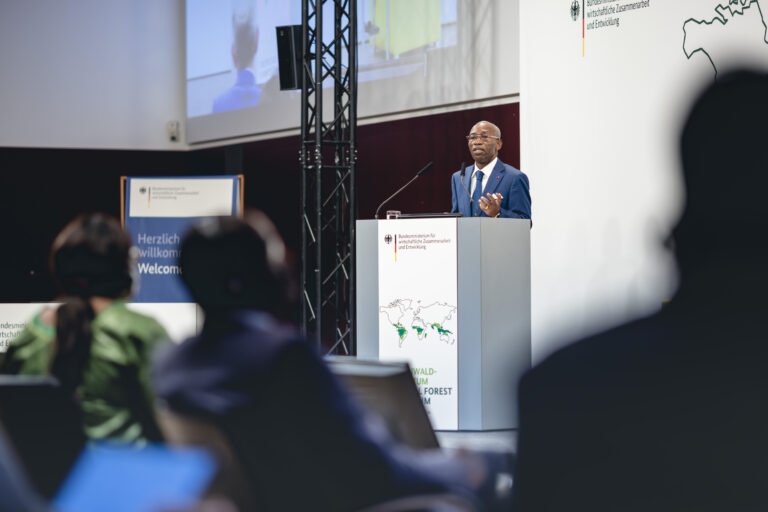

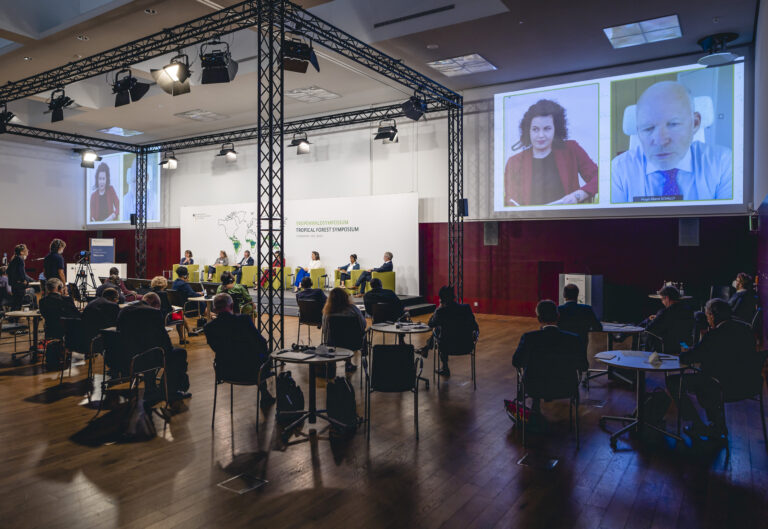
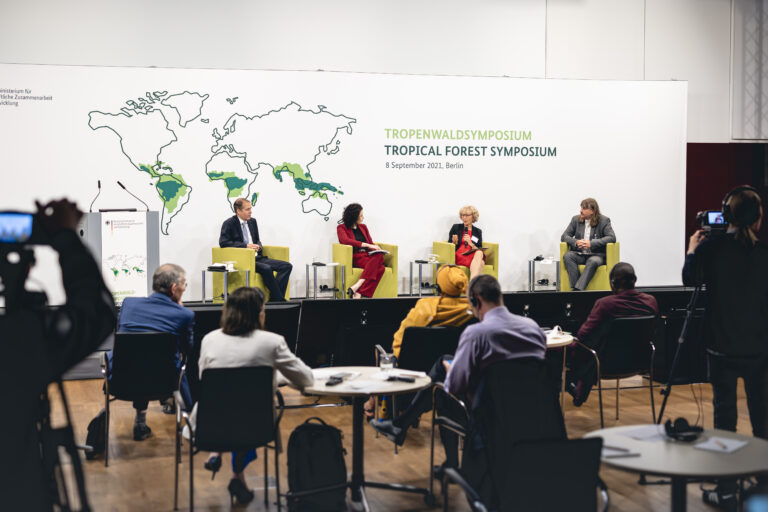
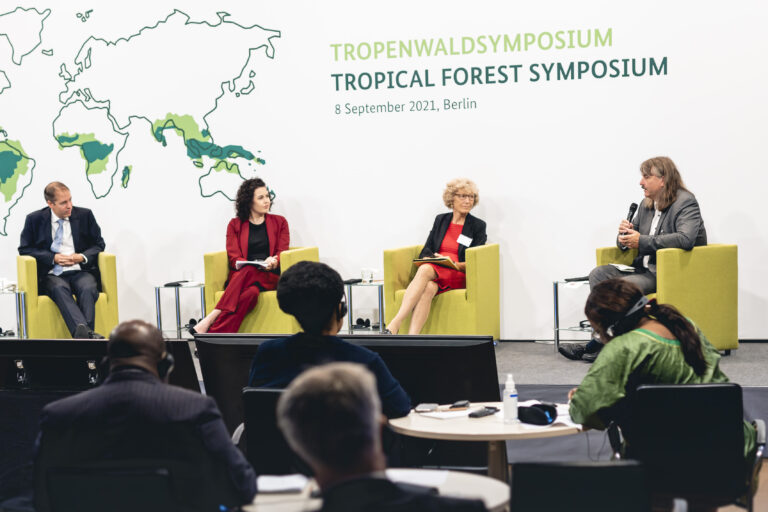
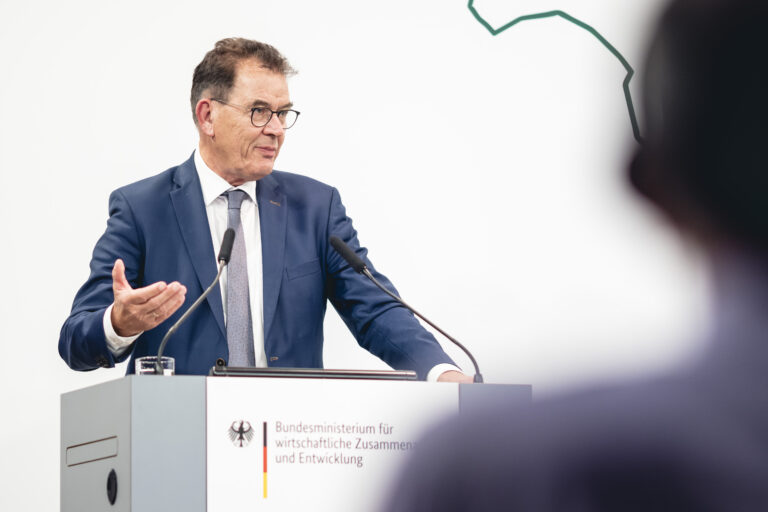
© Xander Heinl/photothek
Current status, trends, causes and environmental and economic consequences of tropical forest loss
Presentation of Prof. Matthew Hansen, University of Maryland
Full-length recording of the Tropical Forest Symposium
| 8 September 2021
To protect tropical forests effectively, a fair deal between tropical forest countries and the global community is needed. The aim of the Tropical Forest Symposium on 8 September 2021 in Berlin was to bring this fair deal to life.
The following video film summarises the answers, proposals and positions of the political decision-makers and German and international experts who exchanged views at the Berlin Tropical Forest Symposium. The film is available in English, French and German. Please choose the language version you prefer.

